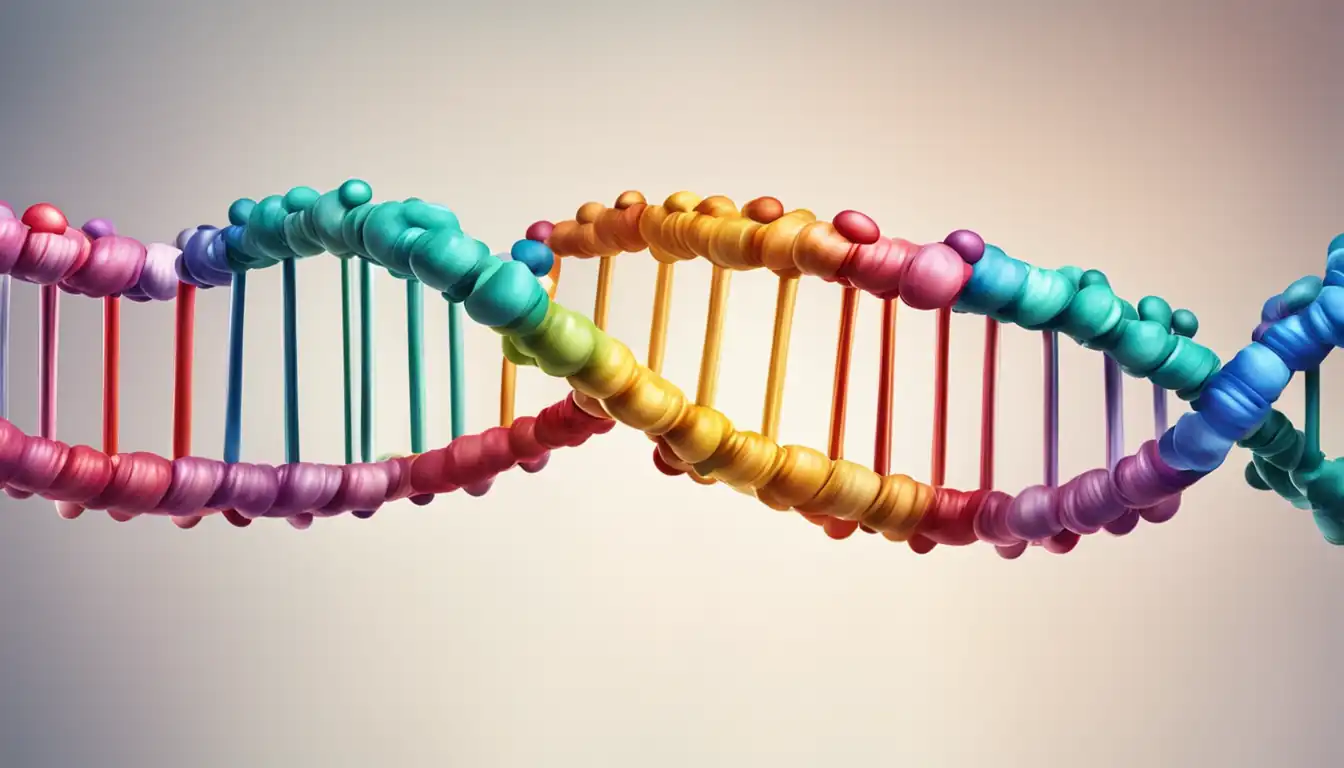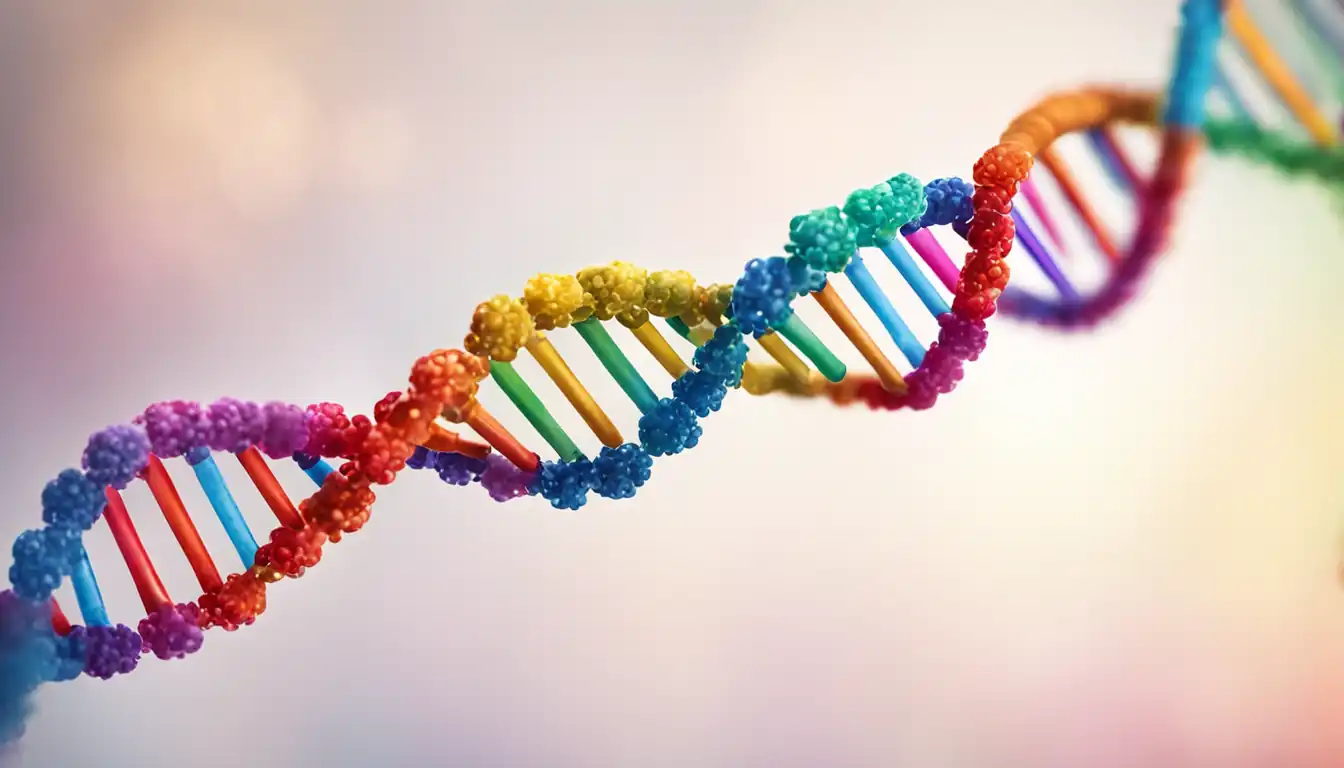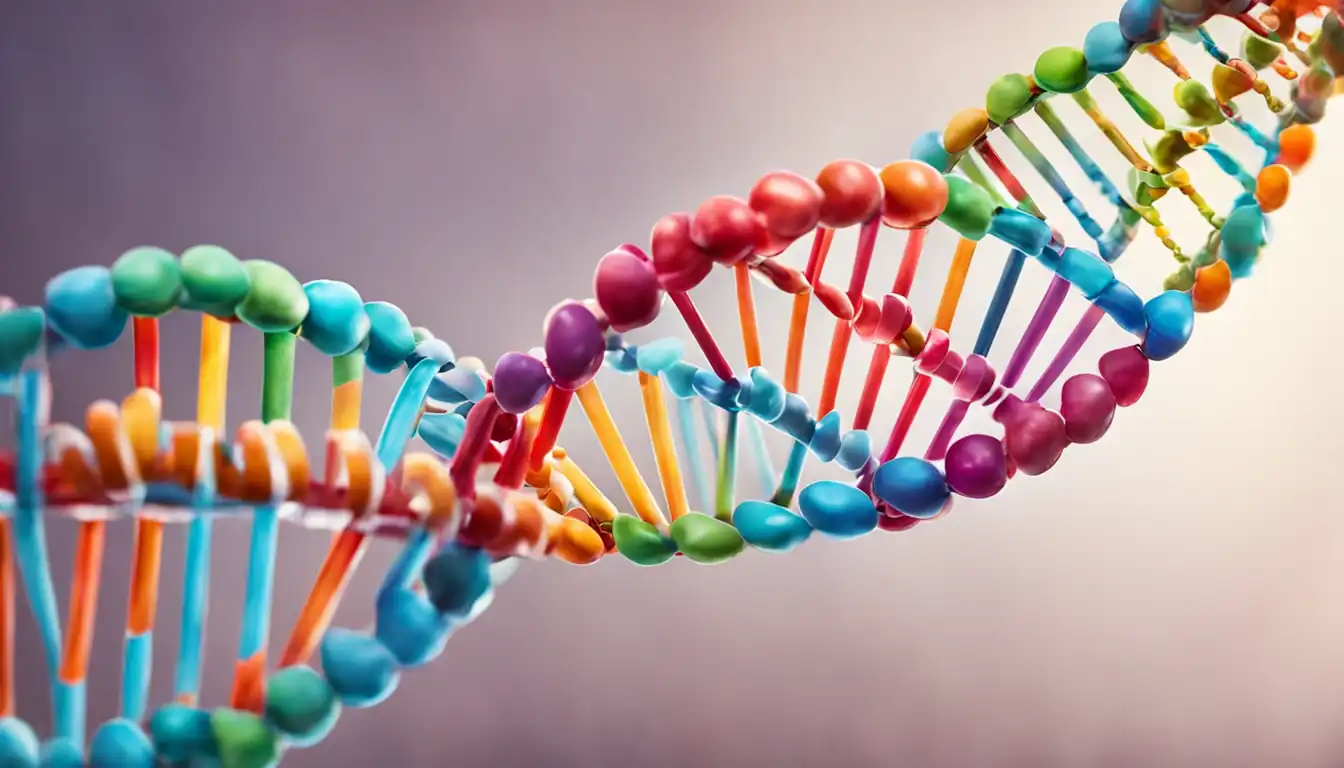Unraveling the Genetic Threads of ADHD
ADHD, or Attention Deficit Hyperactivity Disorder, is a complex neurodevelopmental condition that affects millions of people worldwide. While the exact causes of ADHD are still being unraveled, recent research has shed light on the genetic factors that play a role in this disorder. In this post, we will delve into the intricate world of ADHD genetics, exploring how our DNA may influence the development and expression of ADHD symptoms.
Exploring the Basics of ADHD Genetics

ADHD, or Attention Deficit Hyperactivity Disorder, is a neurodevelopmental disorder that affects individuals' ability to focus, control impulses, and regulate behavior. While the exact cause of ADHD is still not fully understood, research has shown that genetics play a significant role in the development of this disorder.
What We Know About Heredity and ADHD
Studies have indicated that ADHD tends to run in families, suggesting a strong genetic component. Individuals with a family history of ADHD are more likely to develop the disorder themselves. Twin studies have also provided evidence for the heritability of ADHD, with identical twins showing a higher concordance rate compared to fraternal twins.
Genome-wide association studies (GWAS) have identified several genetic variants associated with ADHD. These variants are often located in genes related to neurotransmitter signaling, brain development, and dopamine regulation. However, it's important to note that genetics alone do not determine whether an individual will develop ADHD. Environmental factors also play a crucial role in shaping the expression of these genetic predispositions.
Decoding the DNA Behind Attention Deficits
One gene that has been extensively studied in relation to ADHD is DRD4, which codes for a dopamine receptor involved in reward processing and attention regulation. Variants of the DRD4 gene have been linked to an increased risk of developing ADHD symptoms.
Another gene implicated in ADHD is SLC6A3, which encodes a dopamine transporter protein responsible for clearing dopamine from synapses. Mutations in this gene can lead to dysregulation of dopamine levels in the brain, contributing to attention deficits and hyperactivity.
In addition to these specific genes, researchers are also exploring the role of epigenetics in ADHD. Epigenetic modifications can influence how genes are expressed without altering the underlying DNA sequence. Understanding these epigenetic mechanisms could provide valuable insights into the complex interplay between genetics and environmental factors in shaping ADHD phenotypes.
Overall, unraveling the genetic threads of ADHD is a complex and ongoing process that requires interdisciplinary collaboration between geneticists, neuroscientists, and clinicians. By delving deeper into the molecular underpinnings of this disorder, we can pave the way for more personalized and effective treatments for individuals affected by ADHD.
Key Genetic Markers Linked to ADHD

ADHD, or Attention Deficit Hyperactivity Disorder, is a complex neurodevelopmental difference that has been linked to various genetic markers. Understanding these genetic factors can provide valuable insights into the underlying mechanisms of ADHD.
The Role of Dopamine Receptors
One of the key genetic markers associated with ADHD is related to dopamine receptors. Dopamine is a neurotransmitter that is crucial in regulating attention, motivation, and movement. Research has shown that individuals with ADHD may have variations in genes that code for dopamine receptors, impacting the way dopamine functions in the brain.
Studies have identified specific dopamine receptor genes, such as DRD4 and DRD5, that are commonly associated with ADHD. Variants in these genes have been linked to differences in dopamine signaling pathways, which could contribute to the symptoms observed in individuals with ADHD.
Investigating Other Significant Genes
In addition to dopamine receptor genes, researchers have also identified other significant genes that may play a role in the development of ADHD. For example, genes involved in neurotransmitter transporters (such as DAT1 and NET1) have been implicated in regulating dopamine and norepinephrine levels in the brain.
Furthermore, studies have suggested that genes related to synaptic plasticity and neuronal development, such as BDNF and NRG1, may also be involved in the pathogenesis of ADHD. These genes are thought to influence brain structure and function, potentially contributing to cognitive deficits and behavioral symptoms seen in individuals with ADHD.
By unraveling the genetic threads of ADHD and identifying key genetic markers associated with it, researchers can better understand its biological basis. This knowledge may ultimately lead to more targeted treatments and interventions for individuals affected by ADHD.
How Genetics Interact With Environmental Factors in ADHD
Nature Meets Nurture: A Delicate Dance
ADHD is influenced by a combination of genetic and environmental factors. While genetics play a significant role in predisposing individuals to ADHD, environmental factors can also impact the expression of these genetic traits.
The Impact of Lifestyle and Upbringing on Genetic Expression
Research has shown that lifestyle and upbringing can greatly influence how genes related to ADHD are expressed. Factors such as diet, exposure to toxins, stress levels, and early childhood experiences can all play a role in shaping the manifestation of ADHD symptoms.
"The interplay between genetics and environment in ADHD is a fascinating area of study that highlights the importance of considering both nature and nurture in understanding this disorder."
Recent Advances in Genetic Research for ADHD

In recent years, there have been significant advancements in understanding the genetic basis of Attention-Deficit/Hyperactivity Disorder (ADHD). Researchers have identified a number of genes that are associated with an increased risk of developing ADHD. These findings have provided valuable insights into the underlying biological mechanisms of the disorder.
Breakthrough Studies and Their Implications
One groundbreaking study published in Nature Genetics identified a specific gene, known as CDH13, that is linked to ADHD. This gene plays a crucial role in brain development and has been shown to be involved in regulating attention and impulse control. Another study found that variations in the DRD4 gene may also contribute to the development of ADHD. These discoveries have opened up new avenues for targeted treatments and interventions for individuals with ADHD.
Future Directions in ADHD Genetics Research
Moving forward, researchers are focusing on unraveling the complex interplay between genetics and environmental factors in the development of ADHD. By studying how genes interact with environmental influences such as prenatal exposure to toxins or maternal stress, scientists hope to gain a more comprehensive understanding of the disorder. Additionally, advances in technology such as genome sequencing and gene editing techniques hold promise for further uncovering the genetic underpinnings of ADHD.
As we continue to delve deeper into the genetic threads of ADHD, it is clear that these breakthroughs are paving the way for personalized medicine approaches that could revolutionize how we diagnose and treat individuals with this disorder.
Tailored Approaches to Managing ADHD with a Genetic Component
ADHD, or Attention Deficit Hyperactivity Disorder, is a complex neurodevelopmental disorder that affects individuals of all ages. While the exact cause of ADHD remains unclear, research has shown that genetics play a significant role in its development. By unraveling the genetic threads of ADHD, we can gain valuable insights into personalized approaches for managing this condition.
Personalized Therapy: Harnessing Genetic Insights for Better Outcomes
One of the key benefits of understanding the genetic components of ADHD is the ability to tailor therapy and treatment plans to each individual's unique genetic makeup. By identifying specific genetic markers associated with ADHD, healthcare providers can offer personalized interventions that are more effective and targeted.
Benefits of Personalized Therapy:
- Improved treatment outcomes
- Reduced side effects from medications
- Better adherence to treatment plans
Incorporating genetic testing into the diagnostic process can also help healthcare providers identify potential comorbidities or underlying conditions that may be exacerbating ADHD symptoms. This holistic approach to treatment can lead to better overall outcomes for individuals with ADHD.
How We Support Women with ADHD at Kristen McClure Therapist
At Kristen McClure Therapist, we recognize the unique challenges faced by women with ADHD.
Research has shown that women with ADHD often go undiagnosed or misdiagnosed due to differences in symptom presentation compared to men.
Women need specialized support and resources for women with ADHD, including:
- Gender-specific assessment tools: Women need specialized assessment tools specifically designed for women to ensure an accurate diagnosis.
- Tailored treatment plans: Women need personalized treatment plans that address their unique needs and challenges.
- Support groups: We offer support groups specifically for women with ADHD, providing a safe space for sharing experiences and coping strategies.
By taking a personalized and gender-sensitive approach to managing ADHD, women can empowered with the tools they need to thrive.
Conclusion
As we continue to uncover the genetic threads of ADHD, it becomes increasingly clear that personalized approaches to treatment and management are essential. By understanding how genetics interact with environmental factors in ADHD, we can better tailor interventions to address the unique needs of each individual. With ongoing research and advancements in genetic studies, there is hope for improved support!






